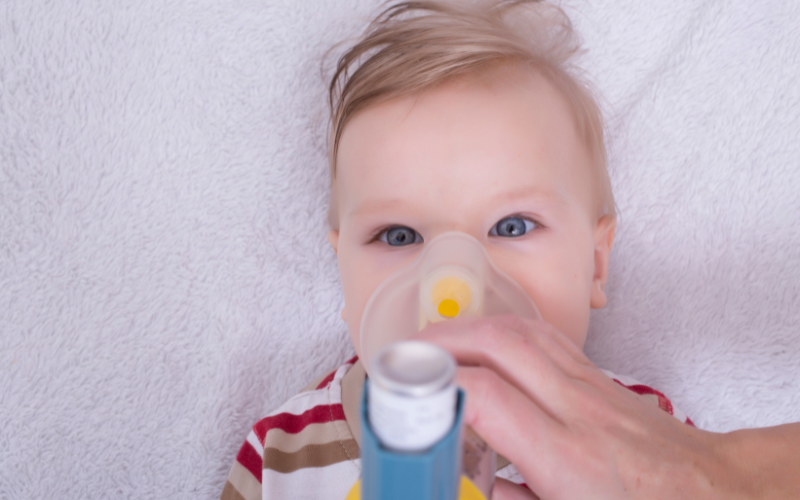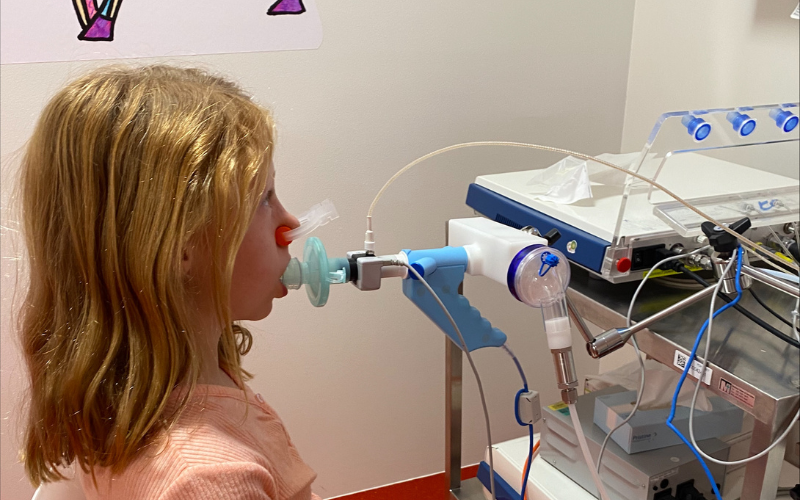Search
Research
AI-Driven Cell Tracking to Enable High-Throughput Drug Screening Targeting Airway Epithelial Repair for Children with AsthmaThe airway epithelium of children with asthma is characterized by aberrant repair that may be therapeutically modifiable. The development of epithelial-targeting therapeutics that enhance airway repair could provide a novel treatment avenue for childhood asthma.

News & Events
Unravelling the mystery of persistent wheeze in children: Study reveals crucial immune cell differencesThe study found the rare immune cells, known as plasmacytoid dendritic cells, showed clear signs of activation and virus defence in children with transient wheeze, whereas in children with persistent wheeze the same immune cells showed very limited activation without any signs of virus defence.

News & Events
Aspire Award funds global learning opportunityDr Renee Ng, a microbiologist specialising in bacteriophage therapy – an alternative to antibiotics to fight antimicrobial resistance – will travel to the world’s premier conference on viruses, bringing new ideas, connections and expertise back to Perth.

News & Events
Wal-yan researchers to participate at scientific meeting for leaders in lung health and respiratory medicineMore than 15 researchers from the Wal-yan Respiratory Research Centre will head to the Gold Coast this weekend to take part in at The Thoracic Society of Australia and New Zealand and The Australia and New Zealand Society of Respiratory Science (TSANZSRS) Annual Scientific Meeting (ASM).

News & Events
Wal-yan researchers to present at largest respiratory meeting in the worldA large contingent of researchers from the Wal-yan Respiratory Research Centre are heading to Spain in September to participate in the European Respiratory Society (ERS) International Congress – the largest respiratory meeting in the world.

News & Events
Funding boost to help turn research into practical changeResearch projects sharing in a $2.1 million funding boost will seek to translate research findings into changes that benefit patients and help the health system run more efficiently.

News & Events
Prestigious grants to support lung health and suicide prevention researchTwo researchers focused on improving outcomes for children with chronic lung disease and averting suicide contagion and suicide clusters in young people have won prestigious Investigator Grants from the National Health and Medical Research Council.

News & Events
Company behind device that improves drug delivery to lungs awarded prestigious innovation awardA The Kids Research Institute Australia spin-off company, Inspiring Holdings Pty Ltd (Inspiring), has been announced as winner of the Wesfarmers Wellbeing Platinum Award in the prestigious WA Innovator of the Year awards for their novel Universal Spacer System – a device which improves the delivery of inhaled dru

News & Events
20-year MAVRIC study celebrates recruitment of its 1000th participantThe MAVRIC (Mechanisms of Acute Viral Respiratory Infection in Children) study recently celebrated the recruitment of the 1000th participant to the study, eight-year-old Sullivan Strahan.

News & Events
New study to better understand how bronchiectasis develops during childhoodA new research project – the WA Paediatric Bronchiectasis Cohort Study – officially commenced this month with the aim of looking at children with bronchiectasis in Western Australia, like nine-year-old Holly (pictured), to better understand how this disease develops during childhood.
